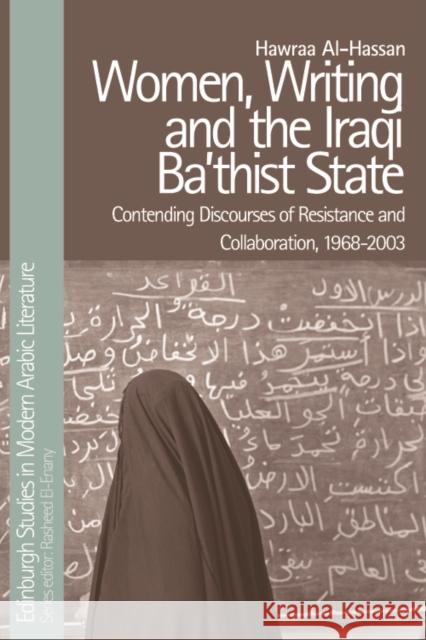Women, Writing and the Iraqi State: Resistance and Collaboration Under the Ba'Th, 1968-2003 » książka
Women, Writing and the Iraqi State: Resistance and Collaboration Under the Ba'Th, 1968-2003
ISBN-13: 9781474441759 / Angielski / Twarda / 2020 / 288 str.
Women, Writing and the Iraqi State: Resistance and Collaboration Under the Ba'Th, 1968-2003
ISBN-13: 9781474441759 / Angielski / Twarda / 2020 / 288 str.
(netto: 464,55 VAT: 5%)
Najniższa cena z 30 dni: 453,37
ok. 30 dni roboczych
Bez gwarancji dostawy przed świętami
Darmowa dostawa!
Explores discourses on gender and representations of women in modern Iraqi fiction Includes marginalised voices in Arabic literary scholarship, such as religious writings by Iraqi Shia women Challenges canonical views of modern Arabic literature by studying propaganda texts such as the novels of Saddam Hussein Argues for an interdisciplinary interpretation of literary texts as cultural products that must be contextualised in the 'market' in which they emerge and are received Uses the concept of 'paratexts' in order to better understand how political works circulate and are marketed to reach a wider audience Relates to broader regional issues such as national identity and the status of women in Arabic societies In an effort to expand its readership and increase support for its pan-Arab project, the Iraqi Ba'th almost completely eradicated illiteracy among women. As Iraq was metaphorically transformed into a 'female', through its nationalist trope, women writers simultaneously found opportunities and faced obstacles from the state, as the 'woman question' became a site of contention between those who would advocate the progressiveness of the Ba'th and those who would stress its repressiveness and immorality. By exploring discourses on gender in both propaganda and high art fictional writings by Iraqis, this book offers an alternative narrative of the literary and cultural history of Iraq.











